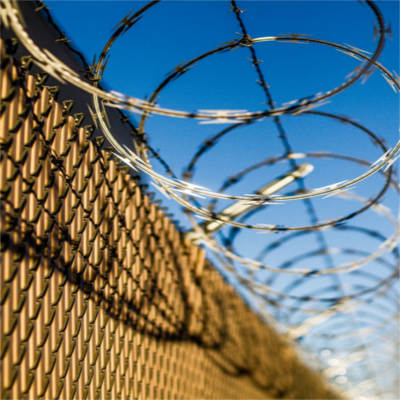Adult Criminal Proceedings
Adult Criminal Proceedings

The main differences are that juvenile proceedings are more flexible, involve your parents and other people, don’t occur in public, and are aimed primarily at rehabilitation or treatment. In adult court, criminal proceedings include pre-trial proceedings, the trial, and sentencing. Everything is public, your parents do not have a right to be involved, and the goals of sentencing include punishment and protection of the public as well as rehabilitation.
The general rule is that you become an adult for purposes of any criminal proceedings when you turn 19. Even before you turn 18, you can be charged in adult court for certain serious crimes, or crimes connected with certain “adult” activities, such as driving offenses, fish and game offenses, and alcohol- related offenses.
At your first court appearance several things may happen.
If the officer who arrested you did not have an arrest warrant at the time of the arrest, the judge must first determine if there was probable cause to arrest. The arresting officer must make a record of the reasons for the arrest either in a written complaint or in an oral statement under oath. The judge will examine the stated reasons to be sure your arrest was justified.
Next the judge will explain the charges against you as well as your right to remain silent and to be represented by an attorney. If you don’t already have an attorney and you believe you cannot afford one, the judge will ask you to answer financial questions. If the judge decides you cannot afford to pay an attorney, the judge will appoint a public defender to represent you.
You may also be required to enter a plea at your initial appearance. This is more likely to happen if you are charged with a misdemeanor. If you have been charged with a felony but the prosecutors have not yet obtained an indictment against you, the judge will not make you enter a plea at your initial appearance. Instead, the judge will explain your right to a preliminary hearing, and will give you a chance to talk with your attorney. You will enter a plea at a later hearing.
When the judge asks how you plead, you may say “not guilty,” “guilty,” or “no contest.” If you plead “not guilty,” the judge will set a trial date. If you plead “guilty” or “no contest,” the judge will make sure you understand that you are waiving your right to a jury trial and your right to confront the witnesses against you. The judge will ask you questions to make sure that you do understand what your plea means, and that you are freely choosing to enter that plea. If you plead “guilty” or “no contest,” the court may sentence you immediately, or may schedule your sentencing at a later date.
At your first hearing, the court may determine if you can be released from custody until the trial. For a less serious crime, the judge might simply release you from custody with directions to appear in court for all scheduled hearings, obey all laws, and maintain contact with your lawyer. The judge can also release you subject to conditions such as home confinement during certain hours, or a third-party custodian who is obligated to watch over you while you are waiting for trial. The judge may also require you to post bail or a bond. This means you must give or promise to give money or property to the court to guarantee that you will show up at your scheduled court hearings.
If prosecutors have not obtained an indictment against you within 10 days if you are in custody, or 20 days if you are released subject to conditions until trial, then they must schedule a preliminary hearing. An indictment is a grand jury’s determination that there is probably cause, or enough evidence against you for the case to continue. When there is no indictment, a judge determines at a preliminary hearing whether there is enough reason to keep you in custody or continue the conditions of your release until trial. You have a right to have your attorney at a preliminary hearing.
If the prosecutors show probable cause to believe that you committed the crime you are charged with, the judge will allow the case against you to go forward. If the prosecutors fail to establish probable cause, then you must be released from custody or from any bail requirements or other conditions of release. But even if you are released after a preliminary hearing, the prosecutors could still obtain an indictment against you and arrest you again.
Your attorney can learn what evidence the prosecutors have against you through a process called discovery. After you and your attorney review the evidence against you, you may decide to enter into a formal agreement called a plea agreement or a plea bargain with the prosecutors. A plea agreement will require you to change your plea to “guilty.” In a plea agreement, the prosecutor may reduce the charge against you to a lesser charge, and agree to recommend a shorter sentence, or other lesser punishment than you might receive if convicted after a trial. The judge has the final word on whether or not to accept the agreement.
Your attorney may file pretrial motions that challenge the indictment or ask to suppress certain evidence that may have been obtained illegally.
When it is time for trial, the prosecutor and your lawyer will select a jury. In jury selection, both the prosecutor and your lawyer will have an opportunity to challenge some prospective jurors, who seem likely to have biases or unfavorable opinions. After the jury is selected, the lawyers will begin the
Trial by summarizing their cases. Then the prosecutors will present their evidence against you by calling witnesses and offering exhibits like photos, documents and objects. You or your lawyer can cross-examine the witnesses against you. After the prosecutors finish presenting the case against you, you can present evidence in your defense. You have the right to testify during your trial, but you do not have to do so. After the jury hears all the witnesses and evidence, the lawyers give closing arguments. Then the jury will deliberate and issue its verdict. If the jury finds you not guilty, you are free to go. If the jury finds you guilty, the judge will schedule a sentencing hearing at a later date. At the sentencing hearing, the judge will decide your sentence based on specific sentencing laws.
In addition to or instead of imposing jail time, the judge can order you to do one or more of the following: pay a fine, perform community work service, participate in programs like alcohol counseling, anger management counseling, or batterers’ accountability programs. The judge can also order payment of restitution, jail costs, and surcharges.
The judge must base your sentence on a number of sentencing factors that are spelled out in Alaska Statutes. Put in simple language, these factors include
the seriousness of the offense;
- your criminal history;
- how likely it is you can be rehabilitated;
- the circumstances of the offense;
- the harm the victim suffered;
- the danger to public safety or order;
- what punishment should be imposed to deter you and others from committing like offenses;
- what punishment should be imposed to express the community’s condemnation of the criminal act; and
- what punishment should be imposed to restore the victim and the
You can read the precise language of the sentencing factors in Alaska Statutes at AS 12.55.005.



